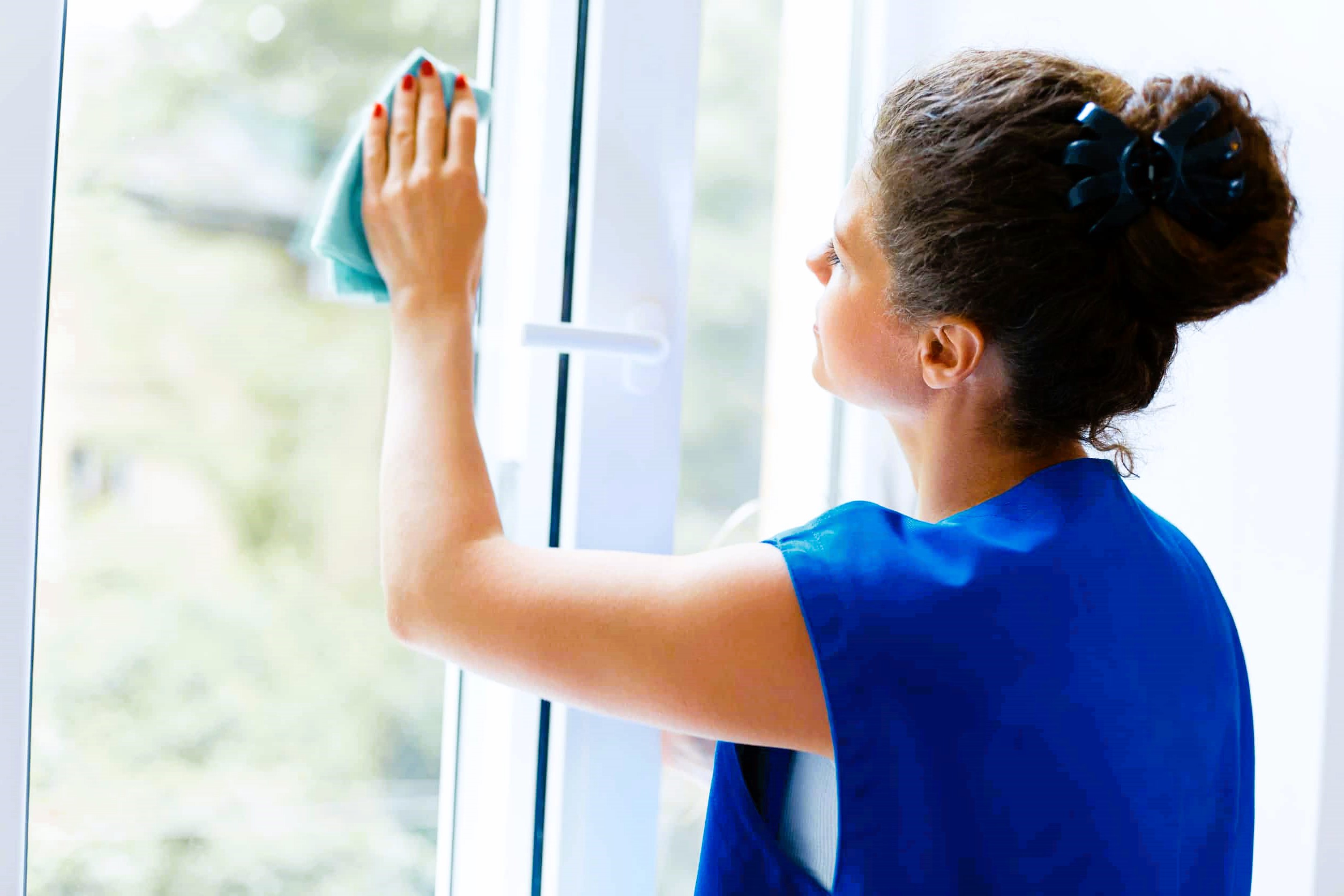Windows are an important part of any home or building, providing natural light, ventilation, and energy efficiency. Proper maintenance and care are essential to ensure their longevity and performance. This article will provide you with tips on how to maintain and care for your windows to keep them functioning properly.
Cleaning Your Windows
Regular cleaning is important to keep your windows looking great and functioning properly. Clean your windows at least twice a year, or more often if you live in a dusty or humid environment. Start by removing any dust, dirt, or debris from the windowsill and frame with a soft cloth or brush. Next, clean the glass using a mixture of warm water and a mild detergent, or a specialized window cleaner. Dry the glass with a soft, lint-free cloth or squeegee to prevent streaking. Need to choose the right roof covering? Check out our guide.

Lubricating Window Tracks and Hinges
Windows that are difficult to open or close may require lubrication. Apply a silicone-based lubricant to the window tracks and hinges to reduce friction and allow for smooth operation. Avoid using petroleum-based lubricants, as they can attract dirt and debris.
Repairing Damage
Minor damage to windows such as cracks, chips, or gaps can be repaired with a specialized window repair kit. Larger damage, such as broken glass or damaged frames, may require professional repair or replacement. It is important to address damage as soon as possible to prevent further deterioration and reduce energy loss.
Maintaining Caulking and Weatherstripping
Caulking and weatherstripping are essential to prevent air and water leaks around your windows. Check the caulking and weatherstripping regularly for cracks or gaps, and replace as needed. It is recommended to replace caulking every five years and weatherstripping every two to three years.
Seasonal Maintenance
Seasonal changes can impact the performance of your windows. During the winter, remove any snow or ice buildup from the windowsill and frame to prevent damage. During the summer, use shading devices such as blinds or curtains to reduce heat transfer and prevent damage to the window components.
Replacing Window Screens
Window screens are an essential part of your windows, keeping out insects and debris while allowing fresh air to flow into your home. Over time, screens can become torn or damaged, allowing insects to enter your home or reducing the amount of fresh air that enters. It is recommended to replace damaged window screens as soon as possible to maintain the proper functioning of your windows.
Trimming Nearby Trees and Shrubs
Trees and shrubs that are growing too close to your windows can cause damage to the glass and frames, as well as block natural light from entering your home. Regularly trim any nearby trees or shrubs to prevent damage and allow for proper sunlight and airflow.
Avoiding Harsh Chemicals

When cleaning your windows, avoid using harsh chemicals that can damage the glass or frames. Ammonia-based cleaners, for example, can cause discoloration or damage to vinyl or aluminum frames. Instead, use a gentle cleaner or a mixture of warm water and mild detergent.
Monitoring for Moisture
Excessive moisture around your windows can cause damage to the frames, walls, and other components of your home. Monitor the area around your windows for signs of moisture, such as condensation or water stains, and address the issue promptly. Installing a dehumidifier can also help to reduce excess moisture in your home.
Conclusion
By following these additional tips for maintaining and caring for your windows, you can ensure their proper functioning and longevity. Replace damaged window screens, trim nearby trees and shrubs, avoid using harsh chemicals, and monitor for moisture to prevent damage and maintain the beauty, energy efficiency, and security of your home or building’s windows.


